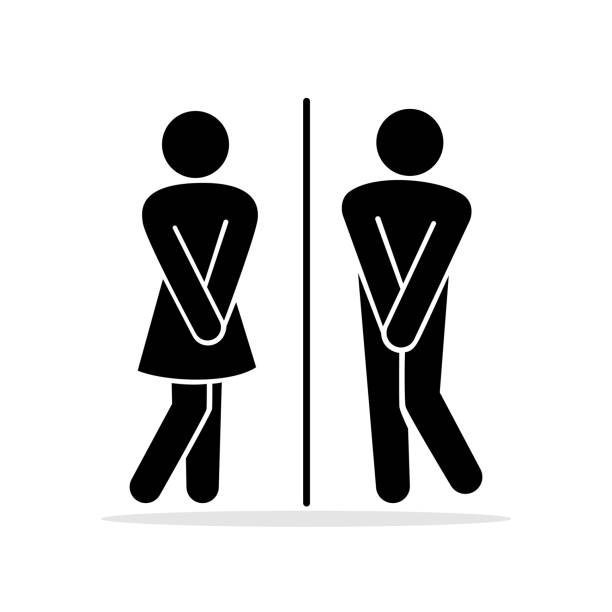
TL;DR:
- Urge incontinence is a condition that causes a sudden need to urinate and results in leakage before reaching the toilet.
- It’s typically more prevalent in women and gets worse with age.
- The most effective long-term treatment is usually surgery, which addresses underlying bladder nerve or muscle issues.
- Root causes can include bladder infections, nerve damage, spinal cord issues, surgery or radiation damage, menopause-induced hormonal changes, and misfiring signals from the brain.
- Other forms of incontinence include stress and overflow incontinence, with each type requiring different treatments.
- Contributing health conditions include menopause, diabetes, neurological diseases, and obesity.
- Age-related bladder changes, emotional and mental health factors, and gender anatomy influence the prevalence and management of urge incontinence.
- Some people experience a combination of urge and stress incontinence, known as mixed incontinence, requiring varied treatments.
—
Dealing with urge incontinence can be challenging, but effective management is possible with the right approach. At the Continence Center at Nevada Surgical, led by Dr. Kent Sasse, we are dedicated to your well-being. This blog post will explore proven methods to manage urge incontinence, highlighting the best practices and treatments available. Whether you’re seeking relief through behavioral therapies or considering medical interventions, we’ll guide you through your options to help you regain control and improve your quality of life. Start your journey to better bladder health today!
Understanding Urge Incontinence: Causes and Treatments
What Is Urge Incontinence?
Urge incontinence is when you feel a sudden need to pee, and the urine leaks before you can reach the toilet. It affects both men and women, but it is more common in women. While it often worsens with age, it is not simply a part of growing older.
The Best Treatment for Urge Incontinence
The most effective long-term solution for urge incontinence is usually surgery. Surgery offers relief when bladder nerves or muscles aren’t working properly. While bladder training and medication can help, they often don’t address the root cause. Surgery can reset overactive bladder nerves, providing lasting benefits.
Causes of Urge Incontinence
Urge incontinence occurs when the bladder acts before you are ready. The bladder muscle, called the detrusor, squeezes at the wrong time, causing leaks. This problem, known as detrusor overactivity, can be caused by:
- Bladder infections
- Nerve damage (such as from diabetes or a stroke)
- Spinal cord issues
- Damage from surgery or radiation
- Hormonal changes during menopause
- Misfiring signals from the brain
Comparing Urge, Stress, and Overflow Incontinence
- Stress Incontinence: Leaks occur during activities like laughing or lifting when pressure is added to the bladder.
- Overflow Incontinence: The bladder fills but doesn’t empty properly, leading to constant dribbling without warning.
Understanding these differences is crucial as treatments vary for each type.
Why Fast Bladder Triggering Happens
The bladder signals the brain when it’s full. In urge incontinence, these signals misfire, prompting the bladder to squeeze at inappropriate times, even when it isn’t full, leading to urgency.
Health Issues Contributing to Urge Incontinence
Several health conditions can cause urge incontinence:
- Menopause: Hormonal changes make nerves more active.
- Diabetes: High sugar levels damage nerves, leading to mixed signals.
- Neurological Conditions: Diseases like Parkinson’s or after a stroke can misdirect signals to the bladder.
- Obesity: Extra weight puts pressure on the bladder.
Age-Related Bladder Changes
As people age, changes can affect bladder control:
- Slower bladder emptying
- Weaker nerve signals
- Thinning bladder tissue
- Increased infections
- Reduced muscle tone
For older men, an enlarged prostate can contribute to symptoms, while women may experience issues due to decreased estrogen and weakened pelvic muscles from childbirth.
Emotional and Mental Health Links
Strong emotions like fear and anxiety can exacerbate bladder issues due to their effect on brain-bladder nerve connections, triggering the bladder during stress.
Why Women Experience Higher Rates of Urge Incontinence
Women’s bodies, with shorter urethras and varied pelvic support, make them more prone to urge incontinence. Hormonal changes also affect bladder control, particularly after menopause.
Mixed Incontinence
Some suffer from both stress and urge incontinence, known as mixed incontinence. Different treatments are necessary for each type, such as pelvic floor exercises for stress incontinence and bladder training for urge incontinence.
Why Surgery Offers Long-Term Success
While medications and training provide temporary relief, many experience better outcomes with surgery. Procedures like bladder Botox or nerve stimulation directly target the underlying issues with fewer side effects than medications.
In conclusion, urge incontinence can significantly impact life quality, but effective treatments, especially surgery, can help regain control over one’s life.
##Conclusion
Urge incontinence can disrupt daily life. Understanding its causes and treatments is crucial. From bladder overactivity to age-related changes, many factors play a role. Seek a thorough diagnosis to identify the condition you face. Behavioral therapies, pelvic exercises, and appropriate medications offer relief. For women, especially the elderly, treatments must consider unique anatomical and hormonal factors. Self-care strategies, like managing fluid intake and avoiding irritants, support symptom management. Surgery may be an option when other treatments don’t work. Prioritizing your health can lead to improved quality of life. Make informed choices for lasting relief.
If you’re struggling with urge incontinence and longing for a long-term solution, it’s time to take action. At [The Continence Center at Nevada Surgical](https://forms.aweber.com/form/55/310012255.htm), we specialize in advanced treatments to help you regain control and improve your quality of life. Learn more about how our surgical options can provide lasting relief and schedule your consultation today!